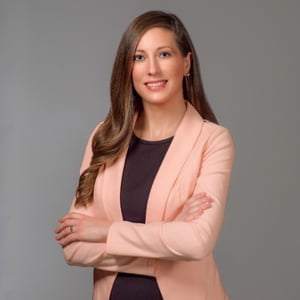 Crayon's Competitive Intelligence Spotlight is an interview series where we chat with intelligence professionals to get a glimpse into their careers and gain unique insight into competitive strategy. In this edition of the Competitive Intelligence Spotlight Series, we shine the light on Samantha Callahan, Competitive Intelligence Analyst, Dinsmore & Shohl LLP.
Crayon's Competitive Intelligence Spotlight is an interview series where we chat with intelligence professionals to get a glimpse into their careers and gain unique insight into competitive strategy. In this edition of the Competitive Intelligence Spotlight Series, we shine the light on Samantha Callahan, Competitive Intelligence Analyst, Dinsmore & Shohl LLP.
ED: What is your role?
SC: As Competitive Intelligence Analyst for Dinsmore, one of the top 200 firms in the country, I provide CI analysis and business development research for all 650+ attorneys, as well as strategic insights for firm leadership and key decision-makers.
ED: What does the company do?
SC: Dinsmore is a full-service, national law firm with 650+ attorneys in 25 cities coast to coast. Our attorneys deliver comprehensive legal solutions to our clients through quality service and tailored business relationships. They practice in more than 40 areas of law, including corporate, litigation, finance, intellectual property, and labor and employment.
ED: Tell me a little bit about your career path. What was your first job, and what other roles have you had that brought you to becoming a CI Analyst?
SC: I’ve definitely had a diverse career path which has given me a lot of versatility. When I first graduated from college, I worked three jobs: in the morning, I was a paralegal for a mid-sized law firm in Upstate New York, in the afternoon I worked in child care, and at night I delivered pizzas. My first “real job” was project management for a financial advisor, before moving to Pittsburgh and trying my hand at insurance sales, both of which taught me the value of understanding the market and your competitors. I then transitioned out of direct sales into business development for a different national law firm, which really prepared me for my current role in CI analysis for Dinsmore. I also studied psychology in college, which is helpful in terms of evaluating decision-making styles, building relationships, and understanding client motivations.
ED: What’s the biggest challenge you’ve faced in the competitive intelligence process?
SC: CI is relatively new to the legal industry, which can sometimes be behind in terms of overall technology innovation in general, so we have to do a little extra work when navigating the sea of data and information available to us. I also find that much of the CI industry’s resources tend to focus on product-based companies, rather than professional services firms, so translating the wealth of CI best practices into best practices for law firms is not always a 1:1 comparison.
ED: How do you ensure that your stakeholders always have the best intel delivered to them?
SC: We try to gather as much information about the request or opportunity up front as possible, as the attorneys often don’t have the time for a lot of back and forth communication during the analysis phase. I like to ask “what are the three pieces of intel that will give you the most value” to narrow my focus and maximize my efforts. I also use a master spreadsheet in Excel for every single project I work on and I couple that with task reminders to follow up on the CI once it leaves my hands.
ED: What do you think is the biggest misconception about competitive intelligence?
SC: That it’s “corporate espionage.” Everyone I’ve met in the industry takes ethics very seriously and most of the data we gather for analysis is readily available to the public anyway.
ED: You mentioned in the Competitive Intelligence Collective that CI for law firms is different than traditional CI. What are the biggest differences between the two practices of CI?
SC: In my reports, I often start with the client or prospect and then I incorporate information about our competitors so we can differentiate ourselves and build stronger relationships. I think traditional CI is reversed, in that it often starts with the competition, then tailors its approach to customers or products based on that information. Clients are the lifeblood of our business, so I spend just as much time understanding what’s happening in their industries as I do analyzing the legal industry.
ED: What skills do you think are necessary for someone who works in competitive intelligence?
SC: Strong reading comprehension, data analysis, and writing skills. You have to enjoy taking a big pile of information and reading, writing, and re-writing until you’ve distilled it down to the most important, actionable insights. You have to be able to make a quick decision about what does and doesn’t make the cut.
ED: What is something you wish you knew earlier in your career?
SC: The value of letting certain things go. You can’t change everything (or everyone) so it’s better to start small and focus your efforts where you can effect change.
ED: What’s the best book you’ve read recently? Work or non-work related?
SC: Work related, I really liked “Great Mondays” by Josh Levine. It has great insights into what corporate culture really means and how a positive one improves profits. For fun, I loved “The Nightingale” by Kristin Hannah.
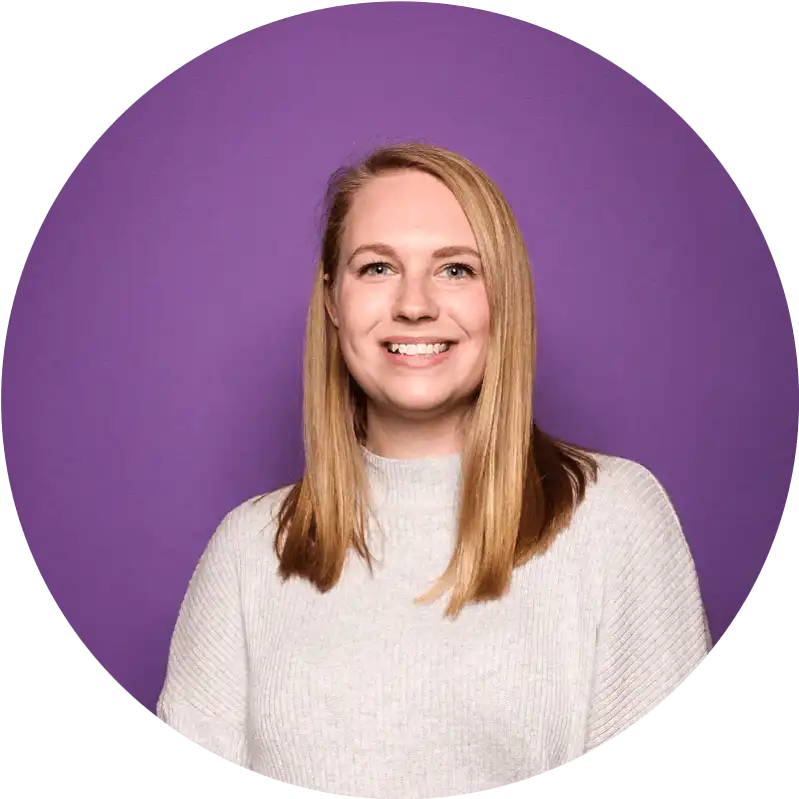
Related Blog Posts
Popular Posts
-
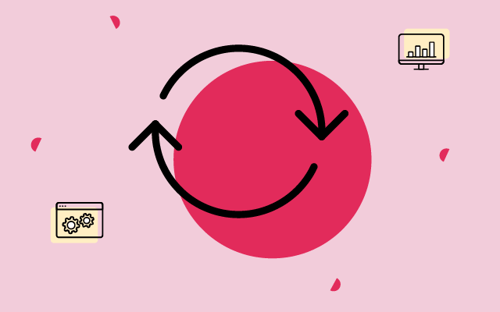 How to Create a Competitive Matrix (Step-by-Step Guide With Examples + Free Templates)
How to Create a Competitive Matrix (Step-by-Step Guide With Examples + Free Templates)
-
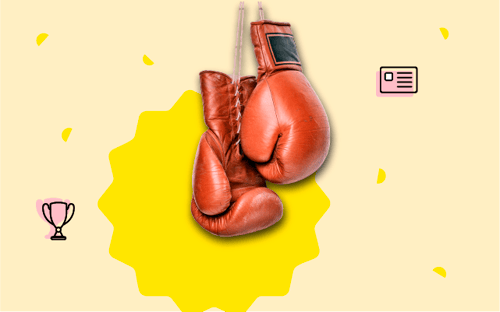 Sales Battlecards 101: How to Help Your Sellers Leave the Competition In the Dust
Sales Battlecards 101: How to Help Your Sellers Leave the Competition In the Dust
-
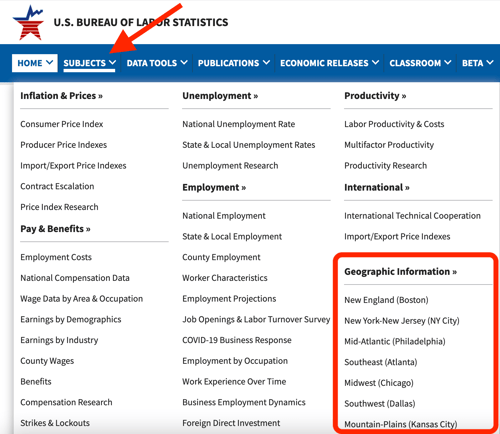 The 8 Free Market Research Tools and Resources You Need to Know
The 8 Free Market Research Tools and Resources You Need to Know
-
 6 Competitive Advantage Examples From the Real World
6 Competitive Advantage Examples From the Real World
-
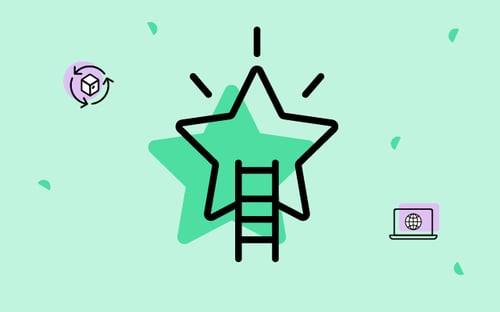 How to Measure Product Launch Success: 12 KPIs You Should Be Tracking
How to Measure Product Launch Success: 12 KPIs You Should Be Tracking
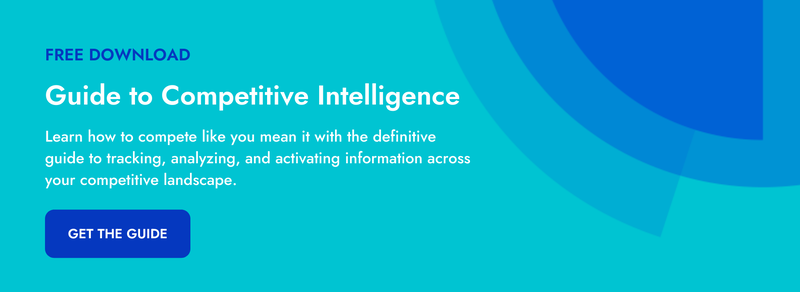



%20(1).png?width=500&name=CI%20Strategy-CI%20Audit%20(1)%20(1).png)